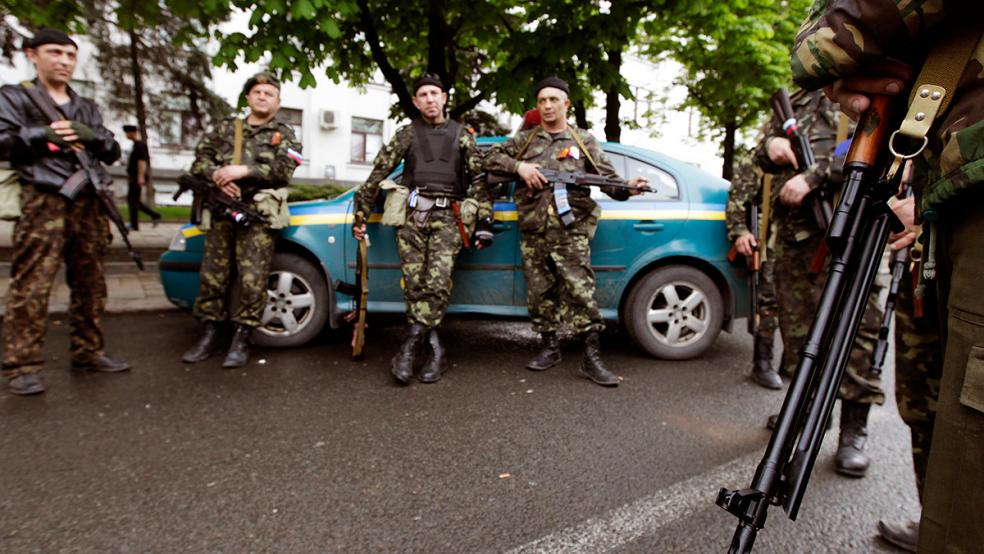As Ukraine continues its seemingly inevitable slide toward civil war, new questions have emerged about how much sway Moscow has over pro-Russia activists fighting with the Ukrainian military.
There is no doubt that Russian Special Forces and other troops are in Ukraine; Russian President Vladimir Putin has admitted as much. There’s also little doubt that Russian weapons are in the hands of the pro-Russia protestors clashing with Ukraine’s army. There simply isn’t any weapon available to an everyday Ukrainian that could take down military helicopters, as the protestors did last week.
Related: Why Putin’s Adventure in Ukraine Is Doomed
However, beyond the presence of some Russian troops and some Russian weapons, it’s unclear how much control Putin or the Russian military have over the protestors. On Friday, Kremlin spokesman Dmitry S. Peskov insisted that Moscow held little sway over those in Ukraine fighting with the Ukrainian military.
Peskov said that Russia had “lost its influence on those people, because it would be impossible to persuade them to disarm amid a direct threat to their lives…The authorities in Kiev are not only directly responsible, they are direct accomplices in these criminal actions. Their hands are full of blood.”
The scope of the protests also suggests that Russia might not have as much control over the protests as they once did. Yesterday, the most deadly clashes between the Ukrainian military and protestors took place in Odessa, a port city located in southwest Ukraine, far from the protests in the east.
It’s possible that Peskov’s comments were another example of Russia trying to manipulate the media. And protestors in the east did release international observers and journalists, as the Kremlin had requested. But the spread of the protests to the far west of Ukraine suggest a situation quickly spiraling out of control.
Related: How Europe Could Finally Call Putin’s Bluff
Ukrainian troops are now massing at its border with Russia, where some 40,000 Russian troops are stationed. Protests in the east and in Odessa continue. Interim Ukrainian President Oleksandr Turchyno has pledged to continue his offensive against those trying to destabilize the country, meaning that there’s no end to the violence in sight.
Meanwhile, the United States and its European allies stand by, unable to influence events. The sanctions issued by President Obama and the European Union last week have done nothing to deter Putin. Secretary of State John Kerry reiterated the threat of new sanctions if Russia did not move to diffuse the crisis.
Related: Why Germany and Poland Are Winners in the Ukraine Crisis
“It’s important for Russia to withdraw support for the separatists,” Kerry said from the Congo. “If those supported by Russia continue to interfere with the election, regrettably there will have to be sanctions, including the possibility of — the reality of — sector sanctions.”
Kerry’s comments came a day after Obama and German Chancellor Angela Merkel pledged unity on their stance in Russia, despite the fact that Europe has refused to target Russian businesses, while the United States has. The leaders hinted that Russian involvement in presidential elections in Ukraine set for the end of this month would be the bar barometer of whether new sanctions would be issued.
But according to Christian Whiton, a former Bush administration State Department senior advisor, the European Union -- Merkel in particular -- is not likely to take any additional action because the Obama administration isn’t taking Russian aggression seriously.
“Germany won’t stick its neck out or imperil its Russian investments if it thinks the Obama administration isn’t serious, which remains a safe assumption,” Whiton said.
Top Reads from The Fiscal Times





